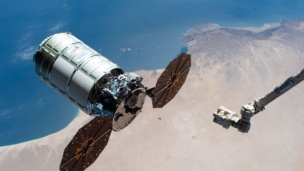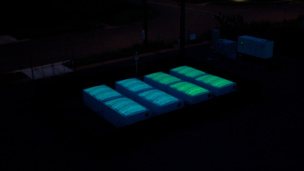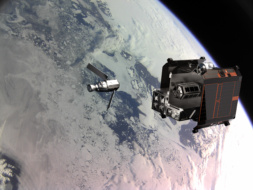Proteus Space thinks satellite manufacturing takes too damn long.
The satellite design and manufacturing startup emerged from semi-stealth today with plans to pick up the pace and bring costs down by automating the build process from beginning to end. With a $4.2M seed round in its pocket, the LA-based company has plans to deploy a superfast satellite design software platform to its customers—and, to do so, has opened a new manufacturing facility where the magic will happen.
“What we’re really doing is attacking the time paradigm of getting to space and getting new capabilities into space,” CEO David Kervin told Payload. “The central part of all of that is rapid, automatic satellite design.”
Proteus 101: Kervin and his cofounder Andrew Shapiro started Proteus in 2021 and set their sights on shrinking the time it takes to get large, bespoke satellites—especially those carrying novel payloads—from the ideation stage to orbit. Rather than going the route of mass-manufacturing standard satellite buses to lower costs, Proteus takes the road less traveled by using modern tech to design brand-new buses for every customer and every payload.
“Instead of trying to make a round peg fit into a square hole every single time you want to integrate a payload, why not design a new satellite for a new payload from scratch every time?” Kervin said.
To pursue this idea, Proteus has raised two rounds of funding: a $450,000 pre-seed from Morpheus Space, and a $4.2M seed round led by Moonshots Capital with participation from Lavrock Ventures, The Veteran Fund, Mana Ventures, AIN Ventures, Capital Factory, and Industrious Ventures.
Automate, automate, automate: The company’s platform will use AI, machine learning, and a digital twin approach to design satellites around the payload, not the other way around.
- The goal is to allow a user to design a satellite in the front end and have a mockup ready to go to manufacturing within 30 days.
- Right now, a large ESPA-class satellite takes 12 to 18 months to go through that process, Kervin said.
“We know for a fact that it can be done,” Kervin said. “We decided to build it.”
The bespoke market: Kervin said that in the year or so since the team has been working on Proteus full-time, the company has clinched a design contract with the Space Force, and is pursuing opportunities to work with other government customers, including the Air Force, AFRL, and Space Systems Command. Additional interest has come from private companies building novel payloads, as well as from large operators looking to innovate their approach.
Note: A previous version of this story misstated the contracts that Proteus has already won with government customers. This error has been corrected.




